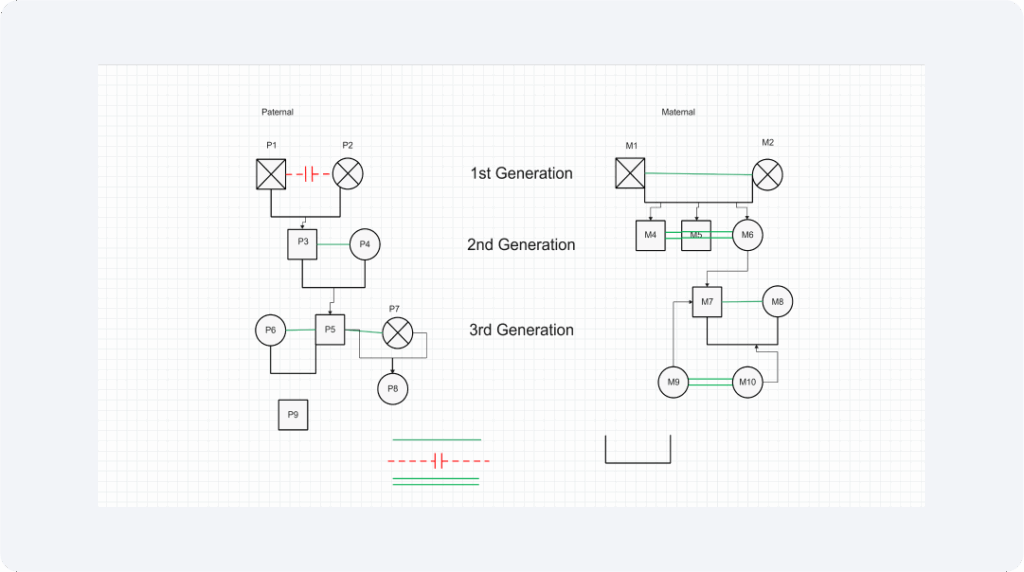Hemophilia is a genetic disorder that impairs the body’s ability to control blood clotting. People with hemophilia often bleed for a longer time after an injury, surgery, or even a minor cut. It is caused by a deficiency in clotting factors, specifically factor VIII for Hemophilia A and factor IX for Hemophilia B. Hemophilia is inherited in an X-linked recessive pattern, meaning it primarily affects males.
A pedigree chart is a diagram that shows the occurrence and relationships of a specific trait or disease within a family over several generations. In the case of hemophilia, the pedigree chart can help track the inheritance pattern of the disorder within a family. In the chart, squares represent males, circles represent females, shaded symbols indicate individuals with hemophilia, and clear symbols represent unaffected individuals. The chart also shows the pattern of inheritance, with affected males passing the disorder to their daughters who are carriers but not affected themselves.
Pedigree Chart Of Hemophilia
Interpreting a Pedigree Chart
When analyzing a pedigree chart of hemophilia, it is important to note the following patterns:
– Hemophilia primarily affects males, as they inherit the disorder on their X chromosome from their carrier mother.
– Carrier females have a 50% chance of passing the hemophilia gene to their sons.
– Hemophilia skips generations, as carrier females do not exhibit symptoms of the disorder.
By studying the pedigree chart, healthcare professionals can identify individuals at risk of hemophilia and provide appropriate genetic counseling and treatment.
